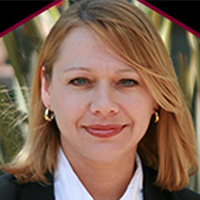 Parker Dam Reorganization Lawyers, California
Parker Dam Reorganization Lawyers, California
Sponsored Law Firm
-
 x
x

Click For More Info:
-
Stratton & Green, ALC
3703 Camino Del Rio S Suite 100B San Diego, CA 92108» view mapBankruptcy & Debt Law Exceptional Advocates.
Stratton & Green is proud to serve as a modern advocate, in that it takes an innovative approach by not only litigating cases through trial but whenever possible.
800-803-3091
Not enough matches for Parker Dam Reorganization lawyer.
Below are all Parker Dam lawyers.
Lawyers
1-3 of 3 matches
Bankruptcy, Contract, Civil Rights, Family Law, Litigation
Identity Theft, Felony, Traffic, Domestic Violence & Neglect



 Sabrina Green San Diego, CA
Sabrina Green San Diego, CA Practice AreasExpertise
Practice AreasExpertise